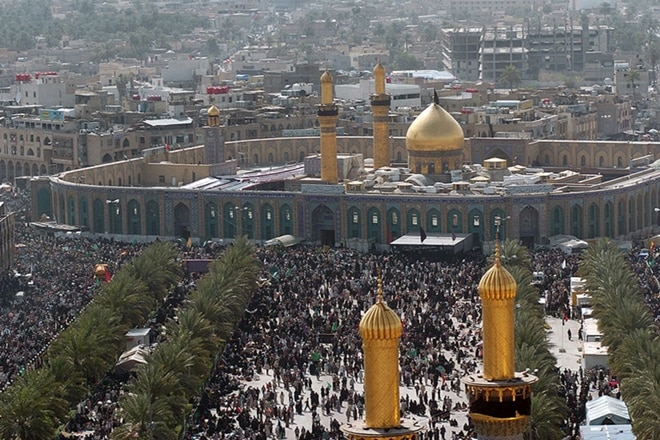In 1885, Mir Mosharraf Hossain, born in a zamindar family of East Bengal, penned the story of the battle of Karbala in Bengali. Such was the popularity of Bishad Sindhu that, within a year of its publication, it sold five reprints.
Bishad Sindhu was Bengali literature’s first modern novel written at a time when the colonial government had put restrictions on freedom of speech in the country and the attitude of most readers reeked of rigid mentality. Not surprisingly, Hossain was severely criticised by conservative Muslims for reimagining the sacred story of Hassan and Hussein, the grandsons of Prophet Muhammad.
The battle of Karbala (between Hussein and Yazid, son of the king of Damascus) took place on the 10th day of the month of Muharram in 680 AD when Prophet Muhammad had been dead for 50 years. The massacre laid the foundation for the Shia-Sunni split and, over the years, the story has earned the character of an epic, continuing to find shelter in the hearts and minds of listeners and readers alike. Even legendary Hindi-Urdu writer Premchand wrote a play titled Karbala to tell the great story.
Now translated in English as Ocean of Melancholy: The Tragedy that was Karbala, the book revolves around the story of how Hassan was poisoned and Hussein brutally beheaded and murdered in the battle of Karbala by Yazid, who was obsessed with Hassan’s wife Zainab and the throne of Medina.
The book starts with Yazid, the prince of Damascus, confessing to his father Muawia his “love” for Zainab, then the wife of well-to-do merchant Abdul Zaddar. Several twists and turns later, Zainab’s first husband Zaddar becomes a fakir due to his greed. After being deserted by her husband, while Zainab is in mourning, she gets marriage proposals from three men, including Hassan. She chooses Hassan because of his spiritual nature. Driven by his lust for Zainab, however, Yazid sends his minister Marwan in disguise to kill Hassan in Medina. Soon, Zainab is imprisoned by Yazid, who also takes over the throne of Medina, leading ultimately to the battle with Hussein.
The narrative is filled with plenty of drama, heroic deeds and supernatural happenings. The storyline inspects human suffering and the greedy and materialistic nature of man, recounting the historic background of the bloodbath that took place.
What’s unique in this book, however, says translator Alo Shome, is that the author not only empathises with the protagonists, but also shows sympathy and understanding for Yazid, endowing his anti-hero with a remarkable human quality: the ability to love another human being (Zainab). Many critics, in fact, have regarded Yazid as the “real” hero of Bishad Sindhu just like many have regarded Satan as the hero of Milton’s Paradise Lost.
Interestingly, the women of the sacred House of Muhammad are compared to Mahabharata’s Draupadi since the insult and torture of the former in the desert of Karbala on the orders of Yazid bears an uncanny resemblance to the way Draupadi was humiliated and stripped on Duryodhana’s orders in the royal assembly of the Kauravas.
And just like the Mahabharata, the two rival parties in this novel, too, have their own unique faults—Yazid and his followers are cruel non-believers, while Hassan and Hussein are filled with a formidable sense of faith in supernatural powers safeguarding them and their people.
Another interesting aspect of Bishad Sindhu at the time was the style of expression employed by Hossain, who used Sanskrititised Bengali throughout. Noted Bengali author Bankim Chandra Chattopadhyay, in fact, said, “This Muslim scholar has written his work in pure Bengali without any trace of ‘Musalmani’ words. His Bengali is purer than that of many Hindu writers.” Perhaps, Chattopadhyay was praising how Hossain didn’t fall in the trap that the English colonisers were setting at the time to divide Bengali society into Muslim and Hindu sections.
All in all, Ocean of Melancholy is a brilliant literary piece.








